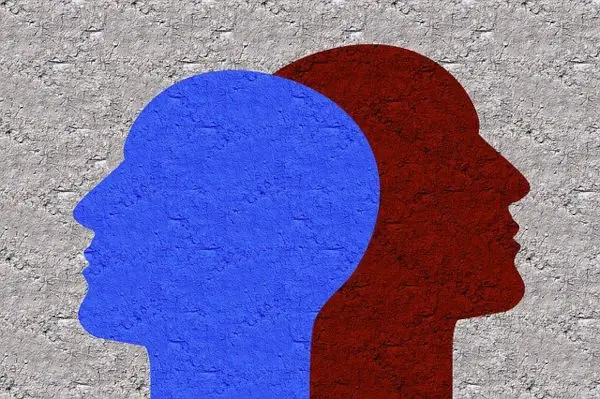Whoever you are, whatever you do, and wherever you live on this planet, you will have to interact with people to fulfill your individual goals and dreams. One aspect of social interaction that poses a challenge to many is the differentiation between reaction and response.
While the two might seem similar on paper, there’s a world of difference between them in terms of their effect on our personal and professional relationships, not to mention what they reveal and influence within us as individuals. In this piece, we’ll be looking at what the two terms represent, their effects, and how we can better manage ourselves to get the best outcomes in our daily lives.
Let’s get right into it.
Reacting and Responding: What’s the Difference?
The React vs. Respond dichotomy should be an area of focus for anyone looking to improve the way they relate to the world around them, and the first step in this endeavor will be to understand what separates them. These are both ways in which we act or communicate after receiving external stimuli from our external environment. Stimuli here might mean what someone says, a situation we find ourselves in, or any number of the general circumstances that make up daily life.
On the academic level, reactions are instinctive or instant in nature, generally considered to stem from our subconscious selves. You don’t need to think before making a reaction, as you’ll be on a sort of auto-pilot mode. The ramifications of what you may do or say in reaction to what’s happening to you or around you will not be considered – you’ll just do or say what first comes to mind.
Responses, on the other hand, are considered to be more thoughtful or mindful. Here, you will take the time to think about how your words or actions in response to external stimuli will affect you and those around you not only in the moment but in the inevitable future that you share with them.
Looking at these definitions, it seems evident that civilized society will be more suitable for responses as opposed to reactions. A responsive attitude seems more likely to yield more positive results in the long term than a reactive position. The reality, however, is that many of us unknowingly live our lives in a reactive setting.
Very few of us will take a moment to reflect on what we want to achieve with our words or actions in the face of external stimuli or triggers. This is through no fault of our own, for the most part. Various factors go into determining our predisposition to react rather than respond to what goes on around us.
Responsive and Reactive Instances
Here are few scenarios exemplifying just what we mean when we make the distinction between reaction and response.

Scenario 1
You discover that your partner is in communication with a previous love interest. Whether you’ve been snooping through their phone or had the information reach you by chance, you feel this to be a breach of your current understanding and relationship. What do you do?
Your immediate reaction might be to accuse your partner of cheating and infidelity. You might demand an explanation from your significant other or, in extreme circumstances, go so far as to confront the ex in question. Such scenarios have an unfortunately high tendency to result in broken relationships, physical altercations, and general bad blood between all parties involved, no matter the underlying realities of the situation.
A response to this, on the other hand, might take a considerably more measured approach. You might be initially angry, which is very understandable, but what you choose to do will be very different. You will take some time to think about the situation and what it might mean. Is your partner cheating? You don’t know for sure, and taking the time to get your own emotions under control will make your discussion with them much calmer and reasoned.
You might get to discover areas where your relationship might be improved upon so that previous attachments will be unnecessary. Ultimately, your relationship might be strengthened rather than destroyed by this event, with the only difference being the way you chose to approach it.
Scenario 2
You receive a report that your child has been involved in a fight at school. Again.
You’ve always tried to teach your child to solve their problems through dialogue and understanding, so you don’t understand why they keep getting into fights with their colleagues. Your immediate reaction might be to admonish and punish the child for engaging in violent behavior to get them to put a stop to it.
A response, on the other hand, might involve a much more nuanced process. Sit the child down and try to figure out what lies at the root of this violent behavior. With no judgment or recriminations, try and find out what the child is feeling with an open mind. They might be on the receiving end of bullying, which children often fail to report, or they might be taking out frustrations they feel at home on their schoolmates. The idea will be to identify what lies at the heart of the matter and address it at the source.
Related Reading: How Do My Thoughts, Beliefs, and Actions Affect My Outcomes? – Opens in new tab.
The Difference between Response and Reaction in Real Life
The examples we’ve outlined above represent very generalized scenarios. Still, they show how reactions and responses might lead to very different outcomes, which is what we’re concerned with here if the goal is to live a good life.
The thought processes that inform our behavior will often have deep-rooted origins, many of which we might be entirely unaware of. We are all emotional beings, and previous experiences will often have a bearing on how we deal with what’s happening around us.
People who have endured traumas of some sort, whether in childhood or their adult life, will often exhibit instinctive reactions to situations where they feel challenged, threatened, belittled, powerless, or otherwise uncomfortable. They very often regret these impulsive reactions later on, but the damage is already done on many occasions.
An interesting study by NYU, for example, detailed how human beings will make judgments about other people within as little as 30 milliseconds of meeting new faces, even though the brain itself takes longer than that to register a new face consciously.

A person’s ‘wiring’ might be said to be what determines a person’s tendency to react immediately or respond to situations, but this might be a little limiting. It’s easy to dismiss someone as ‘having a short fuse’ regarding their habit of flying off the handle whenever faced with an uncomfortable situation.
This doesn’t tell the whole story. Traumatic events trigger the ‘fight or flight reaction in people, which floods our system with adrenalin and has helped us evade danger since the dawn of time. Trauma is a general term for events that might vary greatly, of course, as you can’t compare a near-death experience with a schoolyard scuffle, for instance.
The internalized memory of particular events might, nonetheless, leave lingering traces that influence how new encounters are met, even though they might be on a much lesser scale in terms of danger or potential harm. This self-protecting reaction doesn’t only take the form of anger or aggression; it might manifest itself in denial, avoidance, and other unhelpful coping mechanisms.
How to Stop Reacting and Start Responding
Most of us live or have been living with the belief that we are always conscious of how we face life and have paid little thought to whether we tend to react or respond to the various situations life brings our way. Due to this reality, the choice to re-orient ourselves to a responsive rather than a reactive mindset must be very deliberate and conscious.
Inappropriate reactions will tend to make bad scenarios worse for everyone involved, and very few people will find it impossible to recall an instance where their reaction might have contributed to the worsening of a scenario. With a simple impulsive retort, what might have been an amicable discussion towards finding a solution might turn into an ugly confrontation that ends with very little accomplished.
The higher the pressure, the easier it is for an ill-considered word or gesture to rub us or others the wrong way. If you’ve ever had to work closely with people to accomplish a goal, in school, at work, or anywhere else, you’ll probably be familiar with this phenomenon.
So, how can one begin responding more instead of reacting to the vicissitudes of daily life? The keys are mindfulness, patience, and, most importantly, control.
Mindfulness is a constant attempt to be conscious of what you say and do at all times with regard to your held ideals. If you’ve decided that you want to respond rather than react to what comes your way, you will need to be very vigilant since the essence of the reactive personality is a lack of thinking before speaking or acting.
You’ll need to be very patient with yourself because you’re only human, after all. Changing what might be a lifelong tendency or habit doesn’t happen overnight, so be prepared to face some frustration along the way. Most people will never entirely suppress their reactive nature, but they will always grow and become better able to manage it as long as they are patient with themselves. Progress is the goal.
Tips on How to Begin Responding Instead of Reacting
Control will be the essence of your efforts to respond rather than react to challenges. You have to acknowledge the fact that you can decide how you behave. No matter what your history, upbringing, or experiences may be, you always have a choice laying before you with each new day. That’s where control comes in, and here we can offer some practical tips to help you achieve it.
You can approach each day with the following set of steps at the back of your mind, bringing your mindfulness into play to have them bear on how you ultimately speak or act in the face of all that comes your way:
- Stop: As soon as anything happens to trigger a reaction from you, you will need to stop yourself for a moment. Just pause and take a breath. Sure, it might be easier said than done, but the thing about habits is the more you do them, the easier they become until they get to be second nature.
- Think: Take these few seconds to consider what you’re feeling and why you’re feeling that way. Anger is an empty emotion, as it always has something else behind it. Are you afraid? Anxious? Insecure? Frustrated? By identifying exactly what you’re experiencing, you will be halfway to responding appropriately to the situation.
- Choose: Once you identify what is at the core of your immediate emotional reaction, you can then decide the best way to act upon it. Different scenarios will call for different reactions, but the idea is to make a conscious decision wherever possible. One that you are far less likely to regret later on.
- Respond: With your thoughts in order and composure in balance, you can then proceed to respond in the way you feel best represents who you are, what you hope to be, and the way you wish to relate to the world around you. However trivial at the moment, words and deeds can have powerful ramifications, which is why making appropriate responses to what comes our way is one of the best means by which we can shape the world around us.
Final Thoughts
It’s essential to keep in mind that nobody will have total control over their immediate reactions all of the time. Some people spend their entire lives closed off in temples and monasteries seeking mastery over themselves, and very few will claim to have achieved it even after decades of living.
Stressful situations will make it likely that you go into auto-pilot mode. Still, with practice, mindfulness, and patience, you can achieve the level of self-control that allows you to respond to the world in a way that mirrors your highest vision of yourself. It’s worth the effort.
Check out our recommendations at “Mind Training Bookshelf” and many free resources at our “Free Library“
Stay in Touch
 Join our newsletter by using the forms on this website or click here!
Join our newsletter by using the forms on this website or click here! Follow us on Google News
Follow us on Google News Follow us on Facebook
Follow us on Facebook
Featured image from Depositphotos








